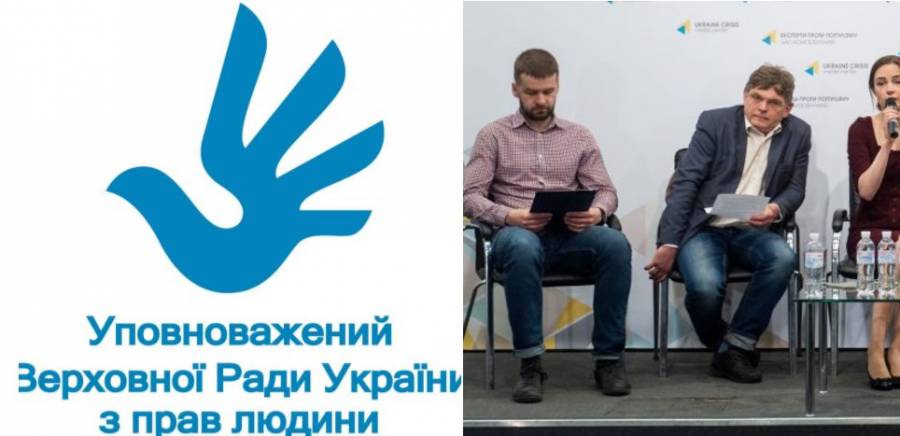Politicians jeopardize role of main human rights body in Ukraine

Three of Ukraine’s main parties have put forward ‘their own’ candidates for the now vacant post of Ukrainian Human Rights Ombudsperson, and human rights groups are up in arms. There can be no political quotas or wheeling-dealing about a person appointed to protect all citizens’ rights in the country, they insist and demand that the country’s legislators consult with civil society in putting forward suitable candidates.
Valeria Lutkovska’s 5-year tenure ended in April, and a new Ombudsperson, or Parliamentary Human Rights Commissioner, must soon be chosen. The relevant parliamentary committee is due to meet on May 24 to consider the candidacy of two MPs, put forward by their respective parties: Serhiy Alexeev, proposed by the Bloc of Petro Poroshenko and Ludmila Denisova, the choice of the People’s Front. Oleh Lyashko, leader of the Radical Party, has proposed a third candidate - Andriy Mamalyty.
Human rights groups will be marking the occasion with a street performance outside the Verkhovna Rada Committees building. The activists plan to highlight the dangers of an ‘Ombudsperson on a political leash’.
Ukraine’s Law on the Human Rights Ombudsperson does stipulate that the person may not be an elected representative or hold any post in executive bodies. They are also expressly prohibited from being a member of any political party.
All as it should be, except for one ‘but’. Article 8 of the Law goes on to say that such incompatible features must be removed within 10 days of their appointment. A person who stood for election and has acted as an MP for a particular party need now only withdraw from the party and resign from their position within the designated timeframe.
This means that a political party is not by law prevented from electing one of their own members to this post. It also provides no safeguards against totally non-transparent deals being drawn between different political factions.
Where does this leave the role of a person called upon to defend the rights of all Ukrainians, regardless of their political views?
Only two people have thus far held the post: Nina Karpachova, from 1998 to 2012, and Valeria Lutkovska up till the present. In both cases, there have been issues, either over their active political engagement, in Karpachova’s case, or in their role under the regime of Viktor Yanukovych, in Lutkovska’s.
This is the first election of an Ombudsperson since Euromaidan. For the moment, there is nothing to suggest that parliamentarians understand that the Ombudsperson is there to serve all citizens, and not part of the power-sharing arrangements within the coalition.
Many human rights groups have established fruitful forms of cooperation with the Ombudsperson’s Secretariat over the past three years and they are determined to uphold the independence of this post.
On May 10, the Human Rights Agenda, a coalition of different human rights NGOs, issued a statement demanding an open competition for the post of Ombudsperson. They stress that in accordance with the UN Paris Principles, this appointment should be made through procedure which safeguards pluralist representation of civil society engaged in human rights defence. They are convinced that it is only through a fair and open competition that the independence, stipulated in the Law, of the Ombudsperson can be ensured.
The human rights NGOs categorically reject political appointments and ‘party quotas’ on a question which will determine state policy on human rights in Ukraine.
Freedom House has since added its voice, urging the Verkhovna Rada “to consider a wide range of candidates and to consult closely with civil society, postponing the formal parliamentary vote if necessary”. Its spokesperson, Marc Behrendt notes that this institution “has significantly contributed to improving human rights in Ukraine and deserves a careful, open selection process”.
All civic NGOs are agreed that the Ombudsperson must be independent and have the support and participation of civil society. It remains to be seen whether Ukraine’s legislators sit up and pay heed.





